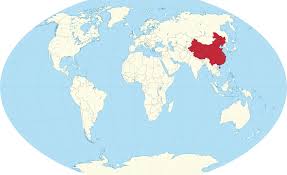China’s influence on our economy

Chinaâs approach to African countries, and Uganda in particular, has been heavily influenced by a shared sense of historical and contemporary struggles against neo-imperialism.Â
This belief has shaped China's interactions with Uganda, fostering a partnership rooted in mutual respect and common interests.
In a 1990 seminal article, Joseph Nye introduced the concept of "soft power," a term that aptly describes China's strategy in Africa.Â
Through attraction and persuasion, rather than coercion, China has managed to influence many nations, including Uganda, shaping their preferences and policies in a subtle yet powerful way.
One of the key aspects of Chinaâs relationship with Uganda is its policy of non-interference in the political affairs of other nations. This stance has significantly strengthened the bond between the two countries, particularly in moments of political tension.Â
For example, after the Uganda Anti-Homosexuality Act was passed in 2014, Uganda received widespread criticism from Western countries, resulting in the withdrawal of economic aid.Â
In contrast, China maintained its policy of non-involvement, continuing to supply aid and infrastructure support to Uganda. This strategy has played a key role in fostering Uganda's growth, especially by boosting economic activity, expanding commodity exports, and enhancing infrastructure investments.
Chinese external financing has been instrumental in addressing deficiencies in Uganda's infrastructure and energy sectors.Â
Chinese firms have led several significant infrastructure initiatives in Uganda. These projects are frequently supported by state-to-state, non-concessional agreements with the Export-Import (EXIM) Bank of China and have been crucial to Uganda's progress (International Growth Centre, 2017). Key examples include the $1.4 billion investment in the Karuma hydropower dam, $483 million for the Isimba hydropower dam, and $350 million for constructing the Kampala-Entebbe Expressway.
However, these infrastructure projects present a mixed blessing for Uganda. On one hand, they enable the swift and cost-effective construction of large-scale infrastructure, avoiding the lengthy and bureaucratic procedures commonly associated with multilateral development banks. On the other hand, the heavy reliance on Chinese financing has significantly increased Uganda's debt burden. As of June 2023, Uganda's public debt had reached $25.3 billion, or 52 percent of its GDP, with over 20 percent of this debt owed to China.Â
This growing debt has sparked public concern over its sustainability, especially if the anticipated economic benefits of the infrastructure investments fail to materialise. There is a rising debate about whether these projects will yield long-term benefits or if they will leave Uganda struggling to manage its debt without compromising its economic sovereignty.
Beyond infrastructure, China has also become one of Uganda's largest trading partner, further cementing its influence on the country's economy.Â
China's primary exports to Uganda include machinery and electrical equipment, while Uganda's exports to China consist mainly of raw goods such as hides, oils, and seeds. This trade relationship has opened new markets for Ugandan products, particularly as China's demand for coffee has surged, providing a boost to Uganda's vital agricultural sector.Â
In the last decade, trade between the two countries has increased from approximately $230 million in 2008 to over $1 billion in 2018 (Molokwu, 2019). By 2022, Chinese exports to Uganda had reached approximately $1.08 billion, while Ugandan exports to China were only around $54 million.
Despite these opportunities, the trade relationship is marked by significant imbalances. Uganda's trade deficit with China has drawn criticism, with concerns that it could exacerbate the country's economic vulnerabilities.Â
Moreover, the influx of cheaper Chinese goods has been criticised for undermining local industries, particularly in manufacturing, where Ugandan-made goods struggle to compete. This dynamic raises a concern that Uganda's economy could become overly dependent on Chinese imports, limiting its ability to develop a self-sustaining industrial base.
As Uganda continues to engage with China, the future of this relationship will depend on how well Uganda manages both the opportunities and challenges it presents. While Chinese investment and trade have undeniably spurred development, Uganda must carefully navigate the risks of debt dependency, and economic imbalance. The outcome of this relationship will have significant implications for Uganda's economic future and its position in the global economy.



0 Comments